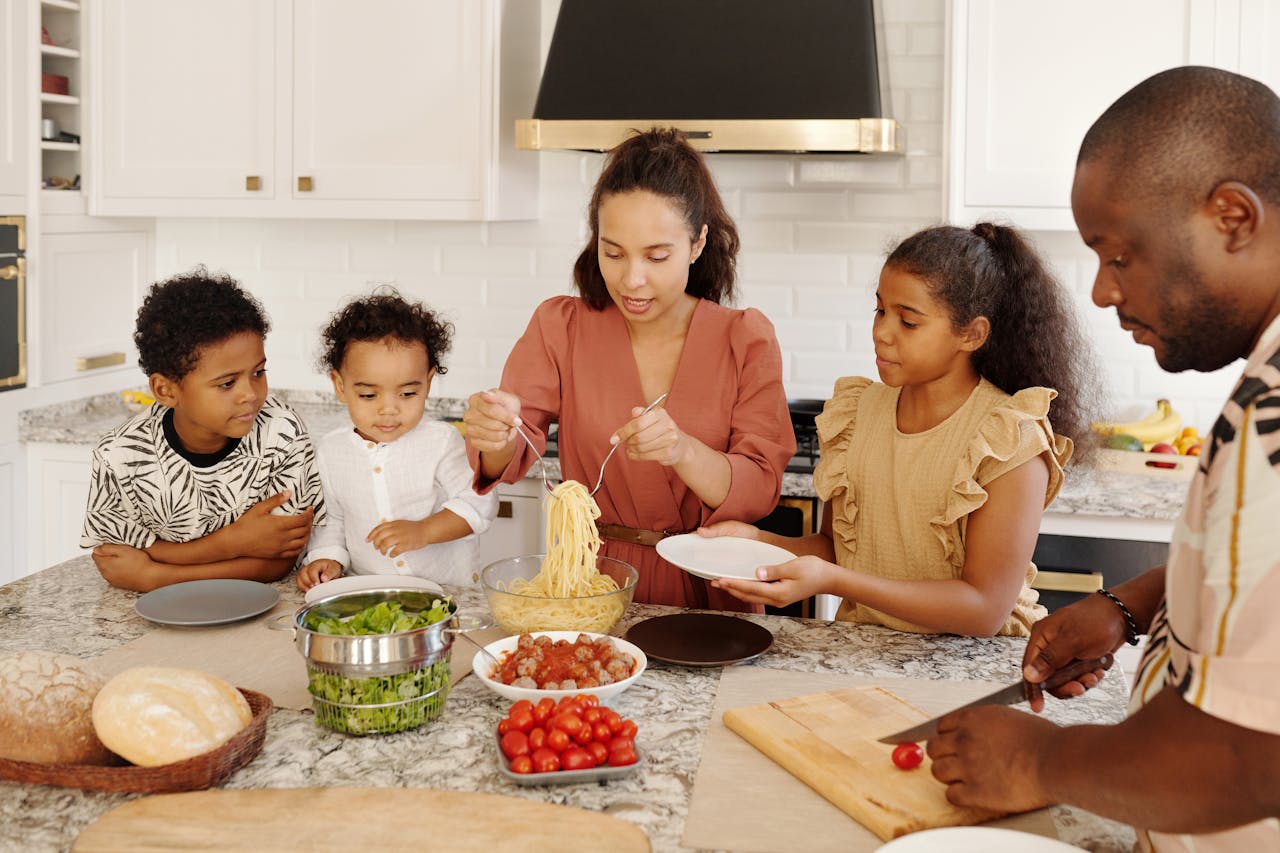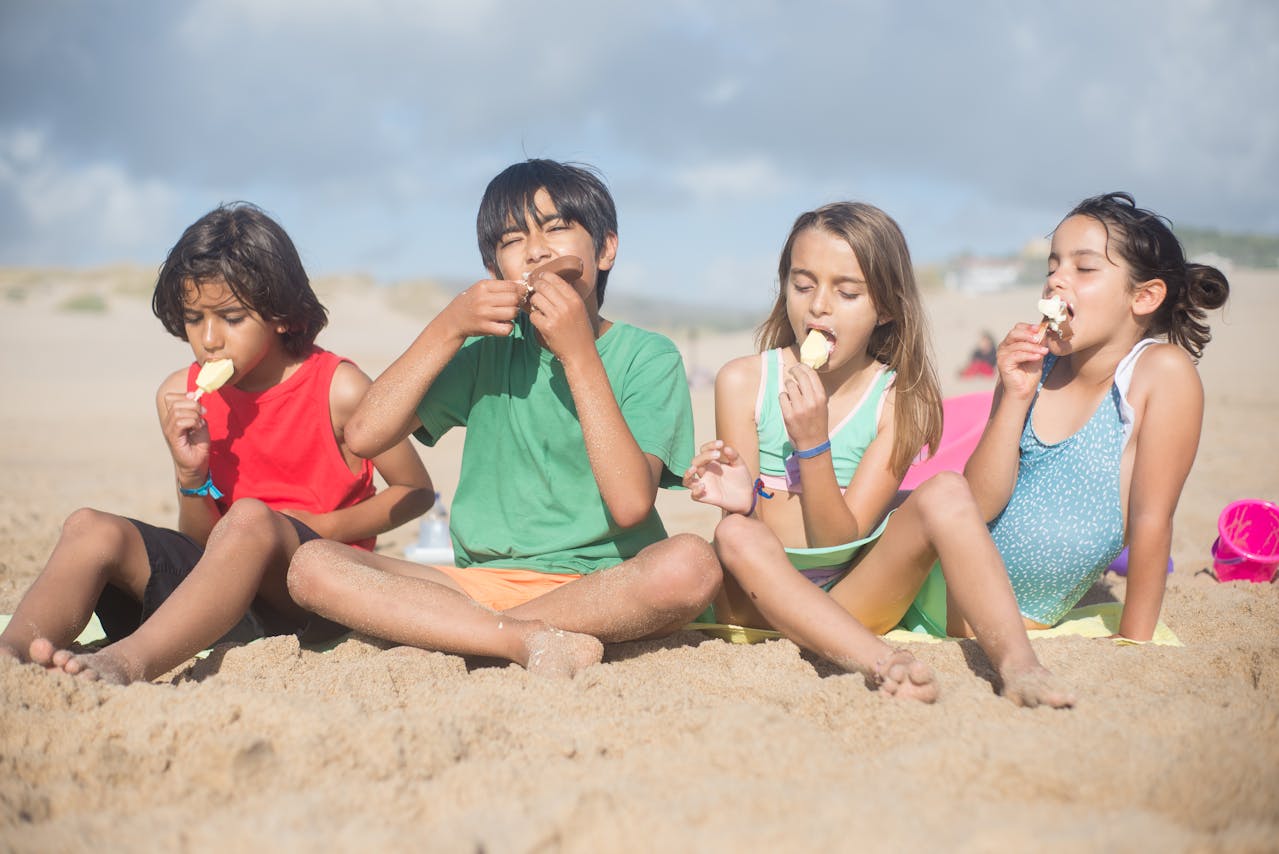The Most Wonderful (and Trickiest) Time of the Year for Parents
The holidays bring lights, laughter, and togetherness — but also overflowing plates, sugary treats, and unpredictable routines.
For children, it’s a time of joy and indulgence. For parents, it can be a delicate balancing act between celebration and health.
At Gentle Pediatrics, we know how important it is to help children enjoy the festive season without compromising their nutrition or overall well-being. The goal isn’t to say no to every cookie or slice of pie — it’s to teach moderation, mindful eating, and healthy choices that last well beyond December.
As your trusted pediatrician in Sugar Land, we’ve compiled research-backed, real-world strategies to help parents navigate holiday meals confidently — supporting both your child’s health and your family’s holiday spirit.
Why Holiday Nutrition Matters More Than You Think
It’s easy to brush off the holiday season as a temporary break from routine, but nutrition during this period plays a surprisingly big role in children’s energy, immunity, and mood.
The combination of sugar overload, reduced physical activity, and disrupted sleep schedules can make kids more prone to fatigue, irritability, and even illness.
These shifts often spill over into January, leading to sluggish starts at school and weakened immune systems.
As pediatricians, we’ve seen how quickly poor holiday eating habits can affect children — especially those who already have sensitivities, mild allergies, or sleep disruptions.
In fact, our recent blog on How Digital Devices Are Changing Adolescent Sleep Patterns — And What Parents Can Do highlights how sleep and nutrition are deeply connected. Poor diet choices often make it even harder for kids to fall asleep and stay rested — especially when screens are involved.
Understanding the Real Challenge: Not Just Food, but Environment
Holiday meals are more than what’s on the plate — they’re tied to emotions, memories, and family traditions. Kids see adults celebrating with food, and they want to join in.
That’s why simply restricting treats rarely works. Instead, the key is creating an environment where healthy choices are easy, enjoyable, and empowering.
Children respond best to encouragement, not control. When parents model balance — choosing vegetables alongside desserts, staying active, and enjoying everything in moderation — kids naturally mirror that behavior.
The Science Behind Holiday Cravings
Why do kids crave sweets so much more during the holidays?
Beyond the obvious — the abundance of cookies and candy canes — there’s a biological reason: sugar triggers dopamine release in the brain, creating feelings of joy and reward.
During festive gatherings, this is amplified by emotional excitement, peer influence, and irregular routines.
Understanding that your child’s cravings are a mix of biology and environment can help you respond with empathy rather than frustration.

The Pediatrician’s Approach: Balance, Not Restriction
At Gentle Pediatrics, we never recommend harsh dietary restrictions for kids — especially during emotionally charged times like holidays. Instead, we guide parents toward structured flexibility:
-
Allow small indulgences without guilt.
-
Balance treats with nutritious meals.
-
Keep regular mealtimes as much as possible.
-
Encourage hydration and physical movement throughout the day.
These small shifts help children learn food balance, an essential life skill that protects them from developing unhealthy relationships with eating later in life.
Smart Strategies for Healthy Holiday Eating
Here are practical, pediatrician-approved strategies every parent can start using today:
1. Start the Day Right
Holiday mornings often include sugary cereals or pastries — but a protein-rich breakfast can make all the difference.
Eggs, Greek yogurt, or nut butter on whole-grain toast helps stabilize blood sugar and reduce cravings later in the day.
A balanced breakfast also keeps energy levels steady, which is especially important when kids are off their usual schedule.
2. Don’t Skip Meals
Skipping meals to “save room†for a big dinner often backfires. It leads to overeating and poor food choices later in the day.
Encourage regular, balanced meals and snacks — even when you know there’s a feast coming.
Maintaining a steady eating rhythm helps prevent spikes and crashes in energy and mood.
3. Make Hydration a Habit
Dehydration often masquerades as hunger. Encourage your child to drink water throughout the day, especially during parties or travel.
Limit sugary drinks like soda and fruit punch. If your child craves something festive, try fruit-infused water with slices of orange or mint for natural sweetness.
4. Watch Portion Sizes — Without Making a Scene
Children don’t need large portions to enjoy holiday foods. Offer smaller servings first, allowing seconds only if they’re truly hungry.
Instead of focusing on restriction, teach listening to the body:
“If you’re full, it’s okay to stop. You can always have more later.â€
This simple conversation helps kids learn internal hunger cues — one of the best gifts you can give them for lifelong health.
5. Involve Kids in Meal Prep
Children who participate in cooking are far more likely to eat what’s served.
Let them help prepare salads, assemble fruit platters, or mix ingredients for healthier desserts.
This not only encourages curiosity about food but also strengthens family bonds. It transforms eating from something done to them into something they’re proud to be part of.
6. Create Healthier Versions of Holiday Favorites
You don’t have to skip family recipes. Simply make small swaps:
-
Use olive oil instead of butter for roasting.
-
Substitute applesauce for part of the sugar in baked goods.
-
Choose lean proteins like turkey or fish instead of heavy red meats.
These subtle adjustments preserve flavor while reducing excess fats and sugars.
7. Manage the Sugar Rush
Sugar itself isn’t the villain — excess is.
If your child enjoys sweets, space them out rather than allowing unrestricted access. Pair sugary foods with proteins or healthy fats to slow absorption and prevent sugar crashes.
Example: Offer a cookie after dinner, not as a standalone snack.
8. Encourage Movement
Physical activity is just as important as what’s on the plate.
Plan family walks after meals, dance parties at home, or friendly games of tag in the yard. Exercise helps regulate metabolism, improve digestion, and keep spirits high.
Navigating Holiday Events and Parties
Family gatherings can be overwhelming for both parents and children. Buffets, dessert tables, and generous relatives make healthy eating tricky.
Here’s how to stay balanced:
-
Pre-feed: Give your child a small healthy snack before leaving home.
-
Scan first: Help them look over the food options before piling the plate.
-
Set gentle boundaries: Encourage sampling rather than overloading.
-
Model mindful eating: Eat slowly, talk about flavors, and show that enjoyment doesn’t mean excess.
This way, your child experiences holiday treats with excitement — not guilt or discomfort.
The Sleep–Nutrition Connection During Holidays
Late-night parties, travel, and excitement often mean less sleep — and that directly affects how kids eat.
When children are tired, their bodies crave quick energy, usually from sugar or refined carbs.
As discussed in our blog on How Digital Devices Are Changing Adolescent Sleep Patterns — And What Parents Can Do,
disrupted rest triggers hormonal imbalances that increase appetite and decrease self-control.
Maintaining consistent bedtimes during holidays can prevent those sugar-driven cravings — and lead to happier, more balanced days.
Environmental Health and Food Choices
Air quality also plays a role in how children’s bodies respond to food.
Our recent post on Air Pollution’s Impact on Childhood Health — What the Latest Research Shows reveals how pollutants can influence metabolism, respiratory function, and immune resilience.
Pairing antioxidant-rich foods like berries, spinach, and citrus fruits with clean hydration helps combat the oxidative stress caused by poor air quality — especially during winter months when pollution levels tend to rise.
When Holiday Indulgence Turns into Discomfort
Sometimes, even balanced habits can’t prevent mild digestive upset or fatigue during the season.
Here are gentle, pediatrician-approved remedies:
-
Encourage extra water intake and light, fibrous meals after indulgent days.
-
Offer probiotics through yogurt or fermented foods.
-
Maintain physical activity and consistent sleep schedules.
If symptoms persist — such as bloating, frequent stomach pain, or unusual lethargy — it may be time to check in with your pediatrician near you to rule out allergies or sensitivities.
Encouraging Mindful Eating in Kids
Mindfulness doesn’t mean overthinking every bite — it’s about awareness and gratitude.
Teach children to appreciate food by encouraging them to slow down, chew well, and notice flavors.
One simple exercise: before eating, ask your child what they’re thankful for about the meal. This builds a positive, emotional connection to food rather than focusing on guilt or excess.
Pediatric Insights: Long-Term Habits Begin with Small Moments
From a pediatric perspective, holidays are powerful teaching moments.
The habits formed now — portion awareness, balance, gratitude — echo through adulthood.
By guiding children toward healthier decisions without making food a battle, parents shape not only their child’s nutrition but also their emotional relationship with eating.
At Gentle Pediatrics, we remind parents that wellness isn’t about perfection — it’s about patterns.
A few sugary treats won’t undo a year of good nutrition, but consistent awareness helps children recover faster from festive indulgence and return to balance naturally.
Healthy Holiday Recipes Kids Will Actually Love
Here are a few ideas for festive yet nutritious options that keep both taste buds and tummies happy:
-
Frozen Fruit Skewers: Colourful, sweet, and fun to assemble.
-
Baked Sweet Potato Fries: Crisped in olive oil, rich in fibre and vitamin A.
-
Greek Yogurt Parfaits: Layered with berries and granola for dessert.
-
Mini Turkey Meatballs: A leaner alternative to fried appetisers.
-
DIY Trail Mix: Combine nuts, dried fruits, and a few dark chocolate chips for a treat that travels well.
These recipes encourage kids to enjoy the holiday spirit without heavy sugars or processed fats.
Supporting Children Emotionally During the Festive Rush

The holidays are joyous — but they can also bring overstimulation, emotional fatigue, and pressure from constant social activity.
A tired or stressed child is more likely to reach for comfort foods.
Keeping routines — bedtime, quiet moments, even brief daily check-ins — helps them stay emotionally balanced.
Remember: emotional regulation and healthy eating go hand in hand. When children feel stable, they make better choices.
When to Consult a Pediatrician
If your child consistently overeats, struggles with digestion, or exhibits changes in weight or mood during the holidays, it may be time to consult your pediatrician in Sugar Land.
At Gentle Pediatrics, we take a holistic approach — looking at nutrition, sleep, environment, and emotional wellness as interconnected elements of your child’s health.
Our team offers guidance tailored to your child’s specific needs, helping families establish sustainable, balanced routines that work year-round.
Building Healthy Holiday Traditions That Last
Food traditions form some of the best family memories — baking cookies, decorating gingerbread houses, or sharing special dinners.
You don’t need to eliminate those. Instead, add new wellness-oriented traditions alongside them:
-
A family walk before dessert
-
A “rainbow salad†contest at dinner
-
A gratitude circle before meals
-
Cooking one new healthy recipe together each year
These activities make health part of the celebration — not separate from it.
The Gentle Pediatrics Holiday Message to Families
At Gentle Pediatrics, we believe the holidays should be about connection, not correction.
Children learn through experiences, and each meal is an opportunity — not just for nourishment but for joy, discovery, and family bonding.
Healthy holiday eating isn’t about saying no — it’s about helping children say yes to balance, mindfulness, and care for their growing bodies.
As your trusted pediatrician near me, we’re here to help you navigate each season with confidence and compassion.
If you’d like professional guidance on your child’s nutrition, digestion, or overall wellness, contact Gentle Pediatrics today. Together, we can make this holiday season both healthy and happy.
